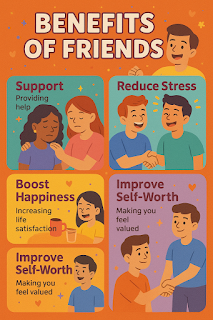Depression is not just a bad mood or a passing sadness. It’s a complex mental health condition that affects how you think, feel, and function daily. The World Health Organization estimates that over 280 million people worldwide live with depression. It can make even simple tasks feel overwhelming. While professional support is often necessary and effective, there are also reliable, research-supported ways to help manage symptoms from home.
This article outlines evidence-based strategies that can help reduce the impact of depression. These are not magic fixes. They take time, intention, and patience. But when practiced consistently, they can help shift the brain and body toward healing. If you're struggling, you're not weak. You're human—and you can take steps that support your recovery.
1. Start With Sleep Hygiene
Sleep and depression are closely linked. Poor sleep can worsen depression, and depression can disrupt sleep. The cycle feeds itself. Research shows that improving sleep habits—even without medication—can ease depressive symptoms. Start by going to bed and waking up at the same time daily, even on weekends. Avoid screens for at least 30–60 minutes before bed, as blue light disrupts melatonin production. Keep your bedroom dark, cool, and quiet. If your mind races at night, try a short guided body scan or a calming podcast. A consistent wind-down routine trains your brain to expect sleep, which can improve mood regulation over time.
2. Use Behavioral Activation
Depression often causes people to withdraw from activities they once enjoyed. Unfortunately, this avoidance reinforces the condition. Behavioral activation is a therapeutic technique backed by cognitive behavioral therapy (CBT). It involves gradually reintroducing meaningful, low-effort activities that create a sense of reward or accomplishment. Start with something manageable—like a 10-minute walk, watering plants, or calling a friend. Even if motivation feels absent, action can precede feeling. Schedule these activities like appointments. The key is consistency over intensity. Small actions, repeated daily, create momentum.
3. Support Your Body Through Movement and Nutrition
Physical activity is not just about fitness. It directly impacts brain chemistry. Studies show that regular moderate exercise can be as effective as antidepressants for some individuals with mild to moderate depression. Aim for 20–30 minutes of movement, three to five times a week. This could be brisk walking, dancing in your kitchen, stretching, or riding a bike—whatever feels accessible. Likewise, nutrition plays a crucial role in mood. Diets high in ultra-processed foods are linked to increased depressive symptoms. Incorporating whole foods—especially those rich in omega-3s (like walnuts, salmon, or flaxseed), folate, and magnesium—can offer mood support. A registered dietitian or mental health-informed physician can help you tailor a plan if needed.
4. Practice Thought Awareness, Not Toxic Positivity
Depression can distort thoughts, making them more negative, rigid, or self-critical. You don’t need to force yourself to “think happy.” That can backfire. Instead, practice becoming aware of automatic thoughts without judgment. Journaling helps. Write down thoughts as they arise—especially during moments of sadness or overwhelm. Then ask: Is this thought 100% true? What’s the evidence? Is there another way to see the situation? Over time, this builds cognitive flexibility, which helps protect against depressive spirals. Apps like CBT-i Coach or Thought Diary can help guide this process.
5. Connect With Someone Safe
Depression often says: isolate. But connection is an antidote. You don’t need a deep therapy session with a friend. Even brief check-ins—texting a sibling, saying hi to a neighbor, or chatting with someone online in a safe space—can improve your sense of belonging. If you’re not ready to talk, spend time around others in low-pressure settings. Visit a coffee shop, sit in a park, or volunteer for a cause you care about. Community acts as a buffer. You are not meant to do this alone.
Final Thoughts
Coping with depression takes work—but the right kind of work. There is no quick cure, and that’s okay. The goal is not to “snap out of it,” but to support your brain and body as they recover, rebuild, and regain balance. Start small. Track what works. Repeat it. If your symptoms persist or worsen, reach out to a mental health professional. Medication, therapy, or both can make a tremendous difference. In the meantime, these DIY strategies can lay a strong foundation. Healing is not linear, but every step you take matters.










